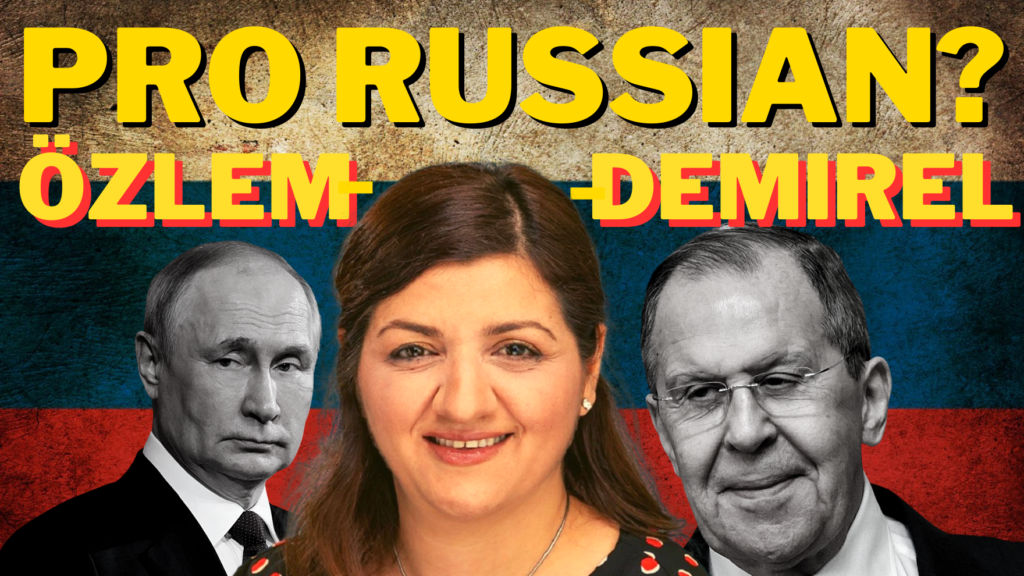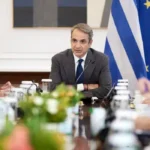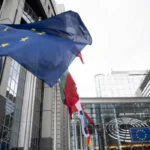German MEP Özlem Demirel has recently made headlines for her soft stance on Russia’s invasion of Ukraine and her opposition to the European Union’s provision of weapons to Ukraine. She believes that a political solution is necessary to end the conflict and that delivering weapons to one side will only prolong the war and increase casualties. This article will delve deeper into Demirel’s opinions on the matter, as well as her views on the EU’s proposed military strategy and the appropriate role for left-wing parties to play in Europe.
Demirel’s Refusal to Condemn Russia’s Invasion of Ukraine
Demirel’s stance on the conflict between Russia and Ukraine has been controversial. She has refused to condemn Russia’s invasion and has instead advocated for a political solution to the conflict. According to Euronews, Demirel stated that the resolution would aggravate the conflict and accused Ursula Von der Leyen, the President of the European Commission, of using the current situation as an opportunity to promote a broader agenda of turning the EU into a strong and concrete military alliance. Additionally, Demirel claimed that Von der Leyen used Zelenskyy’s speech as a pretext to advance this objective.
Demirel believes that the presence of military forces does not necessarily ensure the attainment of peace. She thinks it is cynical to abuse the suffering of the Ukrainians for something like this. The people in Ukraine, Europe, and the world want to live in peace and social security.
Demirel’s Opposition to the European Union’s Provision of Weapons to Ukraine
Demirel clarified her opposition to the European Union’s provision of weapons to Ukraine, which is being funded through the European Peace Facility. She said that it seems treacherous to deliver weapons to one side in an asymmetrical war while claiming not to intervene militarily. She added that neither these arms deliveries nor sanctions, such as the Swift ban, will have a significant impact on the war. Russia, being a military power, does not need to purchase fuel for their tanks from abroad. We must acknowledge that a political, rather than military, solution is necessary to end this conflict. We should increase political pressure for a ceasefire and strive for negotiations towards a resolution.
Demirel believes that the Ukrainian people have also made such demands, recognizing that continuing the war will only lead to more death and suffering. Last year’s launch of the “peace facility,” which intends to purchase weapons for one billion euros to be exported to Ukraine, is not a true peace initiative. Rather, it is a war chest, and even these weapons will not change the military balance of power. Instead, each weapon will only prolong the war and increase the number of casualties. It appears to her that the intention behind these arms deliveries is to increase the cost of war for Russia and turn it into another Afghanistan-like quagmire. In the end, war is always a calculation that results in a death toll.
Demirel’s Views on the EU’s Proposed Military Strategy, known as the “Strategic Compass”
The Strategic Compass negotiations predate the conflict in Ukraine and revolve around how the EU can implement its interests autonomously in foreign policy, including military intervention if necessary. In 2016, it was recognized that the EU needed to safeguard trade and sea routes in its best interests. Pesco, the core of security and defense policy cooperation among EU member states, marked a significant step forward after Britain’s departure from the EU. The Strategic Compass aims to combine existing objectives, instruments, and military capabilities into an overall EU strategy, indicating a commitment to establishing the EU as an independent and well-equipped global power.
During a summit, member states sought to reassure each other of their unity in support of this new military security strategy. The conflict in Ukraine has reignited discussions around NATO’s role in the region, with France pushing for the development of its own military capabilities and closer ties with the US. Meanwhile, Eastern European countries are seeking continuity and closer ties with NATO. Germany wants to strengthen its arms industry while maintaining a relationship with NATO and avoiding excessive dependence on France, which has nuclear weapons. Negotiations have been ongoing about making French nuclear weapons available to Germany. Germany is the most powerful economic force in the EU and does not wish to be overly reliant on France. The conflict in Ukraine has hastened the voting process among EU member states to expand their overall strategy and instruments in line with NATO’s capabilities.







